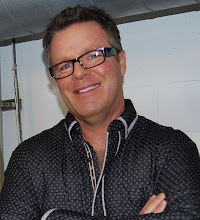Mental and Emotional Health...Our Self-Esteem;
An extremely broad category due to the very nature of our complex inner self and unique way each individual is defined from a subjective perspective. Let's face it, we are a product of a multitude of numerous stimuli, as well as various chemical changes that are going on in our bodies at each given minute. Defining ones Mental and Emotional Health is a challenge even for the experts.
What makes us happy? What makes us sad? What empowers us? These along with a myriad of other emotions affect the very nature of our health, on a daily basis. It has long been documented that increased levels of stress release toxins into our system that over time can set up an inflammatory response. This inflammatory response lowers our immune system, therefore we become more susceptible to various disease processes. If health is an important issues to us, we need to examine ourselves intuitively to look for ways to improve our self- esteem and emotional health.
An adolescent's self-esteem and self-image is usually influenced by their physical appearance. American society and culture emphasizes the importance of being thin. Magazines and television programs repeatedly portrays the physically fit as being the most attractive. Obesity, though largely prevalent throughout the U.S., may leave an adolescent feeling like an outcast. Peers want to have relationships with individuals who are physically and socially attractive. Most obese children probably face these subtle types of subconscious discrimination and that may lead to a decrease in self-esteem.
It is not the appearance that encloses you, it is the emotional attachment to the appearance that encloses you. Eckhart Tolle has said..."The most common ego identifications have to do with possessions, the work you do, social status and recognition, knowledge and education, physical appearance, special abilities, relationships, person and family history, belief systems, and often political, nationalistic, racial, religious, and other collective identifications. None of these is YOU."
Katherine Mansfield wrote, "Could we change our attitude, we should not only see life differently, but life itself would come to be different. Life would undergo a change of appearance because we ourselves had undergone a change of attitude."
Leigh St. John, author, achievement guru, and outstanding humanitarian, has written a book entitled..."What Do I Want To Be?"...This book deals with issues of life and how to deal with peer pressure, "When" & "How" to say "No", as well as how to improve your self-esteem. Although it is geared specifically toward the age group of 7-20 years, it is appropriate for all ages. To follow is a number of excerpts from her book;
"You must be the change you wish to see in the world" {Mahatma Ghandi}.
"Before you can hope to effectively alter your attitude to one of tolerance, understanding and the expectation of great things, you need to ensure that your confidence and self-esteem are strong."
"We can control our emotions. It is up to you if you choose to feel upset, angry, happy or sad. Nothing outside you gives you these emotions...you create them for yourself."
"The moment we begin to fear the opinions of others and hesitate to tell the truth that is in us; from motives of policy are silent when we should speak the divine floods of light and life no longer flow into our souls." Elizabeth Cady Stanton
"Whenever your body is in a state of acute stress, you often experience symptoms such as the following: Poor Memory, Confusion, Difficulty Expressing Yourself, Increased Adrenaline Production, Increased Blood Pressure, & Increased Sugar Levels." These elevated levels are good on a short term basis, but individuals who live in a consistently stressful environment, exhibit more chances for chronic disease to develop."
In my next post, we will look at the spiritual aspects of emotional health...are they necessary? Are they real?
Saturday, March 7, 2009
Subscribe to:
Post Comments (Atom)

No comments:
Post a Comment